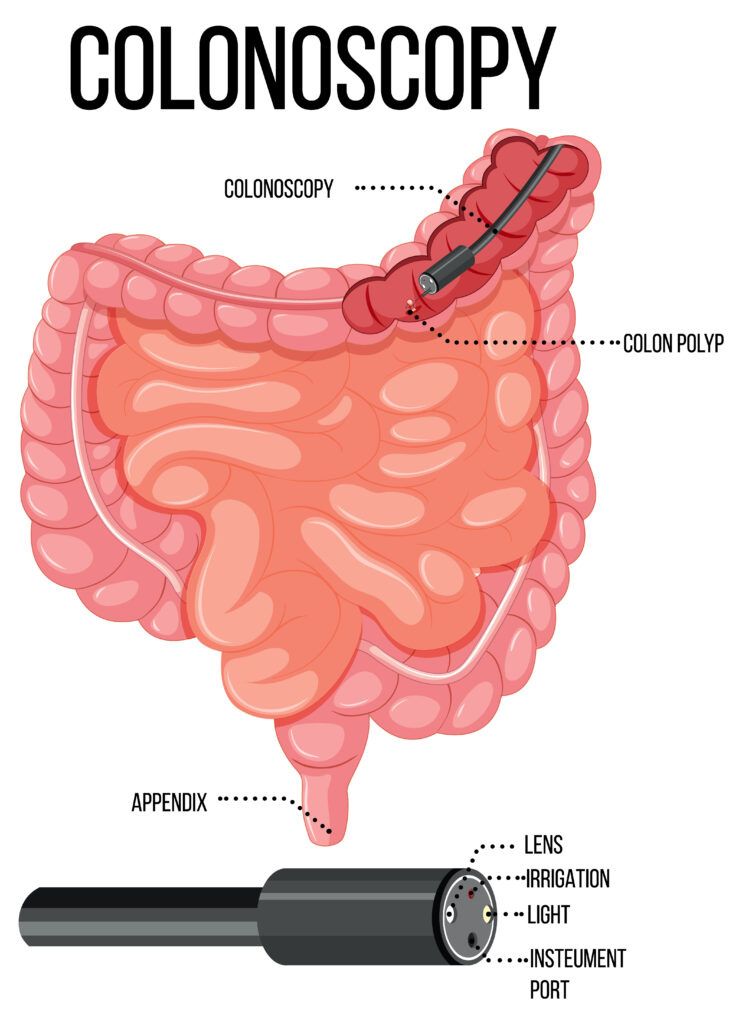Colonoscopy in Aurangabad: Painless Diagnosis

Looking for a trusted Gastroenterologist in Aurangabad for a Colonoscopy? Dr. Ashish R. Gandhi, with over 7 years of experience, offers advanced colonoscopy procedures to diagnose and treat digestive issues. His expertise ensures a comfortable and efficient experience.
Important Information Before Your Colonoscopy at Gandhi Hospital
A colonoscopy is a valuable procedure for examining the inner lining of your large intestine (colon) to detect abnormalities such as polyps or cancer. At Gandhi Hospital in Aurangabad, our gastroenterologist Dr. Ashish Gandhi can perform a colonoscopy to help diagnose and treat various conditions.
Here’s what you should tell Dr. Gandhi before your colonoscopy:
- Medical Conditions: Inform him about any pre-existing medical conditions, including pregnancy, lung problems, or allergies to medications.
- Medications: Disclose all medications you take, especially those that may affect blood clotting, as Dr. Gandhi may need to adjust your dosage before the procedure.
Colonoscopy Preparation at Gandhi Hospital
For a successful colonoscopy, it’s crucial to have a completely clean colon. Dr. Gandhi will provide specific instructions on colonoscopy preparation, which may involve:
- Drinking a cleansing solution
- Taking laxatives
- Administering enemas
Following these instructions meticulously is essential. You’ll also need to discuss any allergies you have and inform Dr. Gandhi about any medications you’re taking.
The Colonoscopy Procedure at Gandhi Hospital
The colonoscopy itself is a relatively simple procedure:
- Vitals and Intravenous (IV) Line: A nurse will record your vital signs (heart rate, blood pressure, etc.) and insert an IV line for sedation to keep you comfortable during the procedure.
- Positioning: You’ll be positioned lying on your side or back on the examination table.
- Colonoscope Insertion: Dr. Gandhi will gently insert a thin, flexible tube with a camera attached (colonoscope) through your anus into your rectum and colon. The colonoscope is about four feet long and half an inch thick.
- Examining the Colon: The colonoscope will slowly advance through your large intestine, allowing Dr. Gandhi to examine the entire lining. It may even reach the end of your small intestine for further inspection.
- Polyp Removal (if necessary): If polyps are detected during the examination, Dr. Gandhi can remove them using tiny instruments inserted through the colonoscope.
- Tissue Sampling (if necessary): In case of suspicious abnormalities, a small tissue sample can be collected from your colon for further analysis in a laboratory.
- Colonoscope Removal: Once the examination is complete, the colonoscope will be slowly withdrawn.
The entire procedure typically takes about an hour, but this can vary depending on the individual.
Reasons for Colonoscopy
Colonoscopy plays a vital role in:
- Colon Cancer Screening: Early detection of colon cancer is crucial, and colonoscopy is an effective screening tool.
- Diagnosing Other Conditions: It can also help diagnose the cause of rectal bleeding, unexplained abdominal pain, or abnormal CT scans of the colon.
- Monitoring Risk Groups: Individuals with a family history of colon cancer or polyps may undergo regular colonoscopy as a preventive measure.
Risks and Alternatives to Colonoscopy
- Bleeding: There’s a slight chance of minor bleeding during a biopsy, but this is usually harmless.
- Discomfort: Inform Dr. Gandhi immediately if you experience any discomfort, pain, fever, or bleeding after the colonoscopy.
Alternatives to Colonoscopy:
- Flexible Sigmoidoscopy: This procedure examines only the lower portion of the colon, not the entire length.
- Virtual Colonoscopy: A CT scan creates detailed images of the colon to construct a virtual image. However, this method cannot remove polyps.
